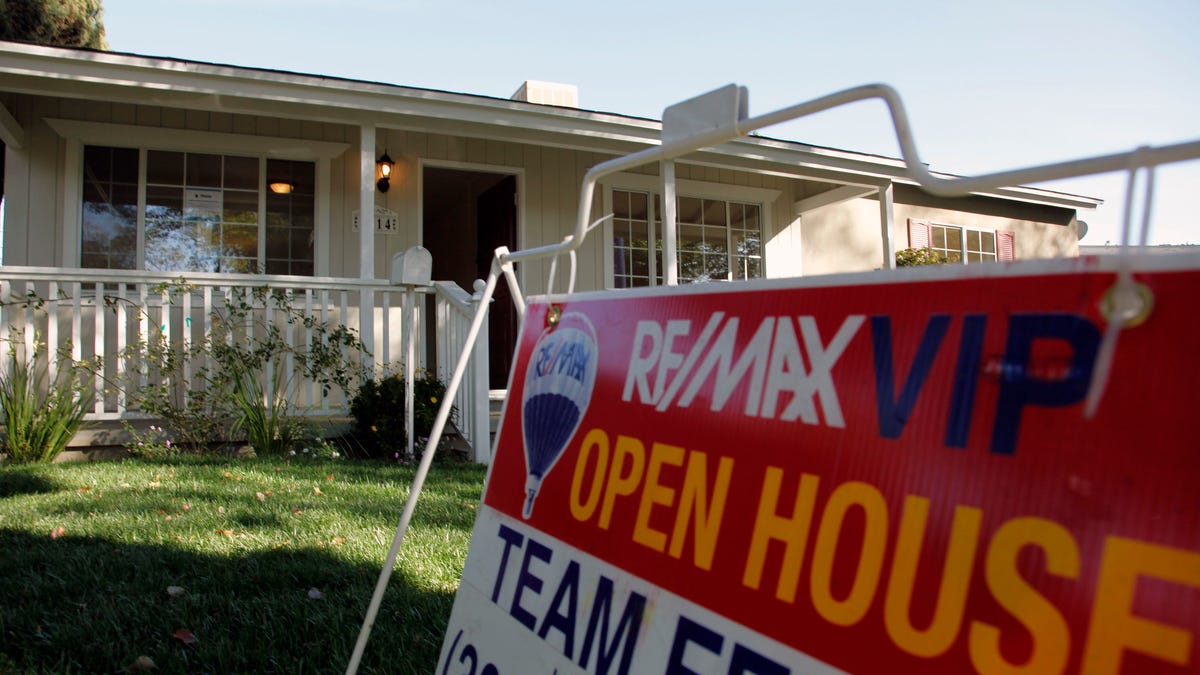
In this Nov. 4, photo, an open house sign is seen on the front lawn of a home for sale in Los Angeles. Home prices are dropping in the nation's largest cities and are expected to fall through next year, with the worst declines coming in areas with high numbers of foreclosures. (AP2010)
The anemic housing market continues to drag the economy down, with new data showing home prices in America's biggest cities on a downward trend which could last through next year.
One analyst said the possibility of a "double-dip" downturn in the housing market is becoming more likely.
The Standard & Poor's/Case-Shiller 20-city home price index, released Tuesday, showed home prices falling 1.3 percent from September to October. For the first time since February 2009, every city on the list marked a decline in that period.
The dismal real estate news comes as the Conference Board shows consumer confidence unexpectedly dropped in December, in part reflecting concern about the availability of jobs.
Though incomes and personal spending have been rising modestly, unemployment edged toward 10 percent last month in a trend that could continue into next year as more people start looking for work. To boot, gas prices are on the rise, topping $3 a gallon on average over the past week.
The unsteady housing situation poses a threat to the overall economic recovery, with the possibility of more homeowners slipping underwater on their mortgages as housing prices drop.
David Blitzer, chairman of the Index Committee for Standard & Poor's, told FoxNews.com there is a "very strong possibility" of the housing market descending into a double-dip. Though definitions of what that could look like are muddy, Blitzer said that if home prices fall below their April 2009 low, that would be a sure sign that the market had definitively gone back into decline. Though the 20-city index has risen 4.4 percent above that 2009 bottom, the numbers have been declining for three consecutive months.
"Anybody who says housing is out of the woods ... they're not looking at these numbers," Blitzer said. "There's clearly a lot of weakness."
He said the expiration of the $8,000 tax credit for first-time homebuyers has something to do with the trend -- he said that federal "gimmick" essentially stole business from the future, and so the market is correcting itself. But he said consumer confidence and anxiety over jobs plays another big factor, as does the continuing trouble prospective homebuyers have in securing loans.
Meanwhile, millions of foreclosures are forcing home prices down while people sit on the sidelines for fear that the bottom has not yet been touched.
Most experts expect the declines to continue through mid-year with prices on average to lose another 5 to 10 percent. The worst drops are coming in cities with the highest foreclosures.
In the latest figures, Atlanta recorded the biggest drop, with prices falling 2.9 percent from a month earlier.
The movement raises questions about what, if anything, the federal government should do. Blitzer said another homebuyer tax credit would be a bad idea.
But the Obama administration is urging bailed-out mortgage giants Fannie Mae and Freddie Mac to do more for Americans who owe more than their homes are worth - an estimated one in five borrowers. The Treasury Department wants Fannie and Freddie to lower the principal on such underwater mortgages and roll them into a Federal Housing Administration program to get their monthly payments down.
Despite the concern that this could cause more losses at the troubled entities, Treasury Secretary Tim Geithner has said the plan could improve the overall housing market by reducing the number of homeowners defaulting on their loans.
The Associated Press contributed to this report.












































